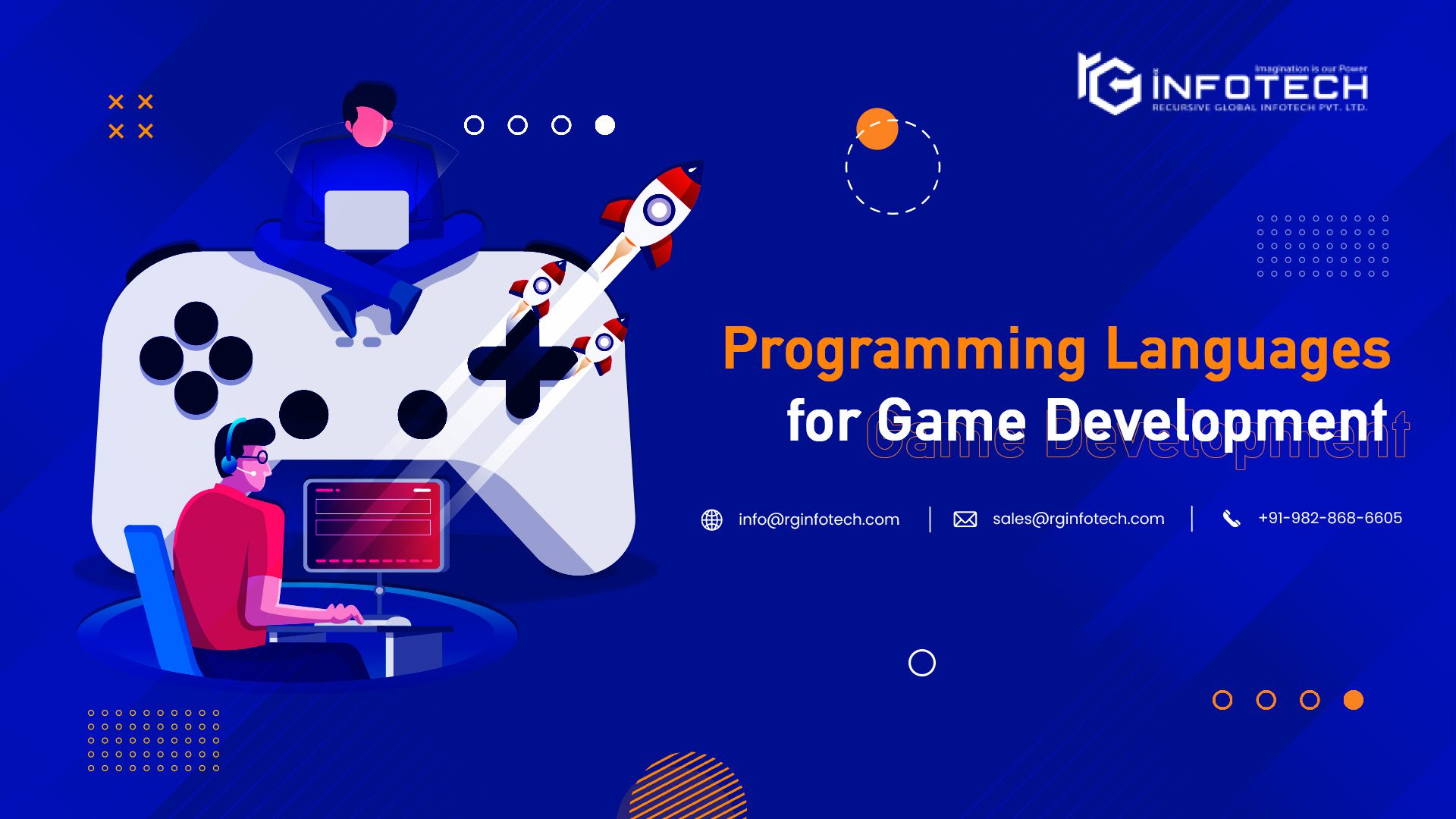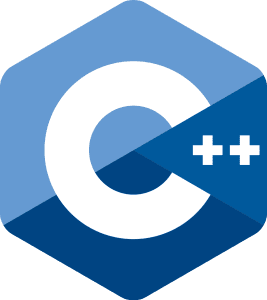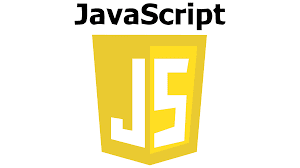
Game development is a thrilling and challenging field, combining creativity with technical knowledge. As you begin your journey to create the next big blockbuster, one of the choices you would be making is to select the best programming language for game development.
In this blog, we’ll discuss the best programming languages used in game development, their strengths, weaknesses, and the kinds of games they might be well-suited for.
According to reports published in Times Of India, the new generation of developers is changing the way gaming is viewed from a pastime to a recognized profession-a fact well and recently proven by the young developers, many of whom were still in college, who participated in the Xbox Game App initiative.
Launched by Microsoft Xbox, it is an initiative that has earmarked itself to help support and foster game developers across Asia.
Looking for the best programming languages for game development?
Let’s discuss your idea with us over coffee.
Understanding Game Development Languages
Defining what game development entails before getting into specific languages would be helpful for users.
Game development is a broad field of activities, from designing game mechanics to writing code, to further optimizing performance. Different programming languages fulfill the peculiar needs of such an ecosystem.
Let’s break down and introduce each of the most popular game development languages and what makes them special.
What Makes Programming Language Beneficial For Game Developers
The benefit for game developers that comes from using a particular programming language is its performance, ease of use, and community support.
On the top list of programming languages are those that can facilitate high-performance graphics and complex game mechanics: C++, C#.
Languages such as Python appeal to beginners due to their ease of fast prototyping. Besides, strong community support and access to resources, libraries, and forums. It helps in collaboration and solving problems.
For a game developer, success would depend much on which of the more distinguished coding languages he or she chooses for development.
Programming Languages for Game Development
Game development experts deal with several programming languages while developing a gaming app, sometimes they include more than one language. You have several optionals to choose from when it comes to the programming for game development. The perfect language for your game application highly depends on the project, what essential features you need the language to have, and your experience level as a programmer. Here are some most popular programming languages for game development teams to use when creating a game app.
C++

Actually, many developers consider that C++ is the best programming language for game development, and in reality, it is.
It gives a powerful and high-level performance, which allows one to work close to the hardware. A lot of popular game engines are developed in C++: which refers to Unreal Engine. It gives many opportunities for comfortable coding and working efficiency.
Pros:
-
-
-
- Performance and speed Highly extensive libraries and frameworks.
- Object-oriented programming helps better organize code.
-
-
Cons:
-
-
-
- More complexity in syntax as compared to other languages.
- Steeper learning curve.
-
-
C++ is used for high-level game development that requires hard-core graphics and real-time processing. Examples include AAA titles and 3D games.
It has been seem that growth in a particular place can be advanced strategies to be developed by the marketing in the particular field their ace to development can be an amazing structure to be followed with advancement in the digital era.
C#

If you’re looking for a game development programming language that balances ease of use with functionality, C# is just the ticket.
It is the major language used in today’s most popular game engine, Unity, so you’ll easily meet many people who share a similar experience and passion.
C# can take advantage of the tough features of C++ but does its job with a much simpler syntax. Thus, C# was also offered as an alternative to C++ for beginners.
Pros:
-
-
-
- Easier compared to C++.
- Has been widely supported, and there is much documentation available from its community.
- Great for use while creating games in 2D and 3D.
-
-
Cons:
-
-
-
- Performs relatively slower compared to C++ when executing certain operations.
-
-
For any gamer out there who hopes to become a game developer, C# is perhaps the best programming language for game development, especially in the case of mobile game development.
Java

Java is another programming language that could be used in game development. It is known for its portability in that the code might be written once to run on many different platforms without modification.
This characteristic makes it pretty popular for web-based games and mobile applications. Java is an excellent option when you are interested in developing games for either Android or online environment platforms.
Pros
-
-
-
- Platform-independent; write once, run anywhere.
- Strong community and extensive libraries.
- Suitable for online multiplayer games because of its network capabilities.
-
-
Cons
-
-
-
- Not as performant as C++ or C# if high-end gaming is intended.
- It needs to be executed in a Java Virtual Machine.
-
-
It falls within the category of ideal programming languages one would want to learn if focusing on developing games in those areas.
Python

Python is not a natural first choice for game development, but it has other advantages that make it an interesting option for certain projects.
The ease and readability of the language allow developers to prototype rapidly while concentrating on the creative process in game development.
Pros:
-
-
-
- Very easy to learn and use.
- Ideal for rapid prototyping and smaller games.
- Strong support for integration with other technologies.
-
-
Cons:
-
-
-
- Not as performance-oriented, particularly for graphics-intensive games.
- Not as much library development as in other languages.
-
-
Python is good for developers coming from other coding traditions. It is one of the better programming languages for a game that focuses on storytelling and casual gameplay.
JavaScript

JavaScript has been quite famous in game development over the last couple of years. It has been one of the good and powerful alternatives, especially for web-based games.
As HTML5 grows, developers can manage to create good engaging games right in the browser and make them easily accessible to the game players.
Pros
-
-
-
- They can run on any web browser, and no installation is required.
- It has a vast ecosystem and support from the community.
- Ideal for casual and social games.
-
-
Cons
- Limited performance for complex games compared to C++ or C#.
- Browser compatibility issues sometimes arrive.
With respect to developers that are coming up with games for the browser or the mobile, JavaScript is one of the code languages that is still standing quite strong.
Lua

Lua has become highly popular as a scripting language for gaming engines like Corona and LÖVE.
Its lightweight and flexibility have made it the go-to scripting language for quick mobile game development and in many embedded systems.
Pros:
-
-
-
- Lua Lightweight integration is possible.
- Ideal for scripting rapid iteration of games.
- Fab display for mobile devices
-
-
Cons:
-
-
-
- It lacks the complexity a C++ would have to enforce in game development, Language is primarily meant for heavy gaming mechanics.
- Not as large a community as compared to other languages.
-
-
If you want quick prototyping and mobile game development, then Lua is among the best languages for making games for you.
Swift

Swift is the best programming language for game development, especially for developers who are focused on developing games for Apple platforms.
It is a new programming language built with modern syntax and powerful features for iOS and macOS games.
Pros:
-
-
-
- It is designed safely and for performance.
- It is easy to read and write.
- Strong support from Apple, and there is a great developer community.
-
-
Cons:
-
-
-
- It is platform-specific and is just confined to Apple platforms.
- Smaller library for game development resources as compared to C# or C++.
-
-
Of course, if your target audience constitutes mostly users with Apple, it would not be difficult to master Swift and create exciting games for the iOS ecosystem.
Rust

Rust is a systems programming language that prioritizes performance and safety more than everything. While not as often applied for games as other languages, it’s getting in popularity due to its unique features gradually.
Pros
-
-
-
- Memory safety without garbage collection.
- High performance was similar to C++.
- Strong community and growing libraries for game development.
-
-
Cons
- The smaller pool of game development resources.
- The steeper learning curve as compared to the higher-level languages.
Rust becomes an interesting option for the future of game development for the developers interested in developing performance – and safety-first games.
Choose the Right Programming Language for Your Game With RG Infotech
The choice of an appropriate game-developing language is important to achieve your vision, and RG Infotech is here to facilitate this.
What type of game are you trying to develop? Is it 2D mobile, a complex 3D AAA title, or some type of web-based experience? It’s quite important because your target platform will determine your programming language, for example, whether you use Swift on an iOS platform, or Java for an Android platform.
In addition to this, the requirements for performance will also determine your decision; C++ or Rust is perfect for more high-performance games, whereas Python or JavaScript will do well for simpler projects. We emphasize, too, the importance of a friendly community in helping you along the way.
Utilizing our knowledge and experience, we shall be able to guide you in the determination of the language to use which may correspond with your objectives and level of skills for successful development.
Conclusion
The best programming language for game development will depend on the person’s needs and goals and their projected games. C++ and C# are among the leaders for hard-core, serious game developers, while languages such as Java and Python offer great advantages for other projects.
Lua and Swift appear to be niche languages, and Rust seems to emerge as a more suitable alternative for people who look forward to performance-oriented gaming.
So, whatever path you choose, just remember that the most important thing to consider in game development is your passion for it and your imagination. So, there’s your take-off point into the language of your choice – immerse yourself in it, create, and let the game world welcome your style.
Frequently Asked Questions (FAQs)
If you’re still a beginner, then C# and Python are your friends. These both have a relatively gentle learning curve as well as loads of online material available. C# is particularly popular in Unity development; while Python is fantastic for prototyping.
iOS code is usually in Swift, Android would be Java or Kotlin. Of the options you list, if you really want cross-platform, your best bet probably goes to Unity in C# or one of the React Native packages.
You can! To my best knowledge, it is not the most common choice of language for creating 3D games, but with libraries like Panda3D or Pygame, you would easily get going. However, when it becomes a high-performance 3D game then, C++ or C# with Unity makes more sense.
It will matter more if it’s a beginner’s language because there are helpful tutorials, forums, and even troubleshooting assistance to be accessed with a healthy community. For instance, languages like C#, C++, and JavaScript have huge communities that will lead you through.
True! C# and other languages for Unity, and GDScript and others for Godot, were actually designed with game development in mind, so they have lots of features that make game mechanics easier to build and organize themselves.
Well, it happens to people that they want to change programming languages down the road. Game development usually involves changing languages as well. Most of the concepts you learn, such as object-oriented programming and design patterns, are transferable to other languages. Knowing one will make it easier to learn from others in the future!
The post The Best Programming Languages for Game Development appeared first on RG Infotech.